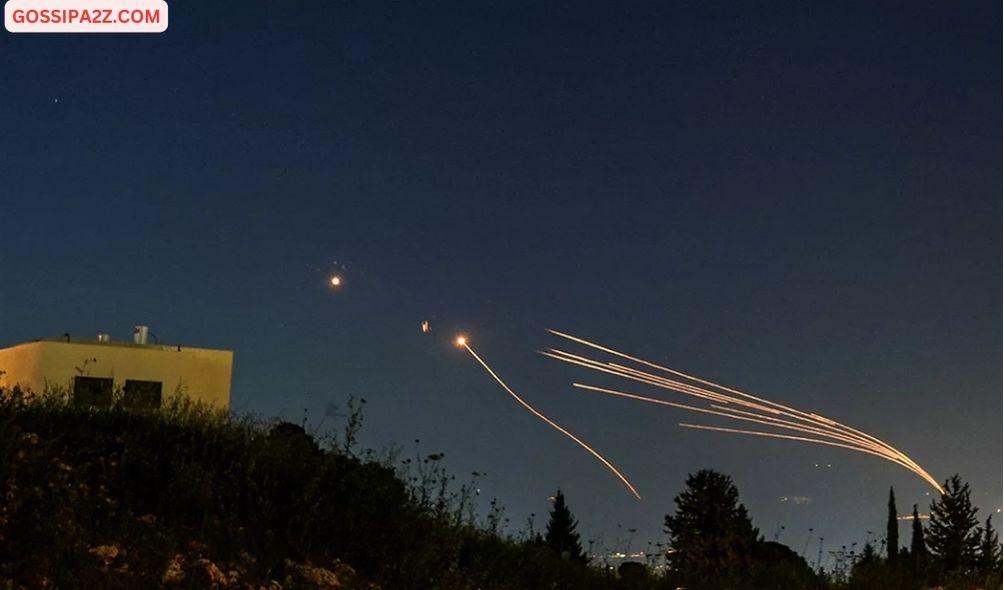Inside Israel’s Overnight Strike on Iran: What We Know
US officials say Israel hit Iran with a missile overnight on Friday, in what appears to be a retaliatory strike after weeks of escalating tensions between the two countries.
There are competing claims about the scale of the attack on the Isfahan region and the extent of any damage, with Iranian state media downplaying its significance.
It comes after weeks of soaring tensions between the regional rivals, which have already seen an Israeli attack on an Iranian compound in Syria, and Iran launch an unprecedented assault against Israel.
Here is everything we know about the latest incident so far.
How do we know there has been a strike?
Israel does not routinely confirm its military actions, which have targeted Iranian-backed armed groups in Syria and Iraq on many occasions.
However, US officials have confirmed to the BBC’s partner CBS News that an Israeli missile hit Iran in the early hours of Friday. The US would likely have been told about the plans in advance.
It is unclear what type of weapons were used or where they were launched from.
US sources said a missile was involved in the attack, while Iran said it had involved small drones.
Iran’s government tightly controls access to the country. The BBC does not have direct access to the central region of Isfahan, where this incident played out overnight.
What is Iran saying about the strike?
Iranian officials and media have confirmed there was an attempted strike but are downplaying the significance of it. There have been no reports of casualties.
Iran’s Fars news agency said explosions were heard near an army base and air defence systems were activated.
A state media channel quoted a general in Isfahan as saying explosions heard in the area were “due to air defense firing at suspicious objects”, and saying there had been no damage.
Iran’s semi-official Tasnim news agency, which is close to Iran’s powerful Islamic Revolution Guard Corps military wing, posted a video of a nuclear facility in Isfahan that did not show any signs it had been hit.
The International Atomic Energy Agency has confirmed there has been no damage to Iran’s nuclear sites.
Hossein Dalirian, a spokesman for Iran’s National Centre of Cyberspace, said there was “no air attack from outside borders”.
ALSO READ:
- “Two Groups, One Agenda”: Gachagua Accuses Raila of Secret Political Deals
- Exclusive: Ida Odinga’s 75th Birthday Party in Karen (Photos)
- FKF President Discloses Exact Amount Paid to Harambee Stars Players
- Gachagua’s Ally Senator John Methu Admits Ruto Might Win 2027 Elections
- Maraga Explains Why He Hasn’t Campaigned in Kisii Despite 2027 Bid
He said Israel had “only made a failed and humiliating attempt to fly quadcopters [drones] and the quadcopters have also been shot down”.
Iran imposed restrictions on commercial flights in the hours immediately after the strike but they have now been lifted.
Explosions were also reported in Iraq and Syria – where armed groups backed by Iran operate – overnight, but it is unclear if they were directly linked to the Isfahan strike.
The Syrian defense ministry said an air defense site in the south of Syria was hit by an Israeli missile in the early hours of Friday morning local time. Israel has not confirmed it was behind the strike.
Why was Isfahan targeted and why now?
Isfahan province is a large area in the centre of Iran which takes its name from its largest city.
The region is home to significant Iranian military infrastructure, including a large airbase, a major missile production complex, and several nuclear facilities.
This latest strike comes less than a week after Iran launched hundreds of missiles and drones at Israel, an incident seen as a dramatic escalation in tensions.
Despite its vast scale and unprecedented nature, Iran’s attack was largely unsuccessful, with the vast majority of projectiles shot down by Israeli air defenses with the help of the US, UK, and other allies.
That unprecedented attack on Israeli soil was in response to a strike against a building on an Iranian diplomatic compound in Syria on 1 April.
Israel has not publicly confirmed it was behind that strike either, but it is widely accepted that it was.
Will this increase tensions between Israel and Iran?
The full significance of this latest strike is still becoming clear and it is not yet known whether Iran will seek to respond.
BBC security correspondent Frank Gardener described the scale of Friday’s attack as “limited, almost symbolic”, and potentially designed to ensure the conflict goes no further.
Israeli Prime Minister Benjamin Netanyahu will come under competing pressures from some of his own generals and political allies to push back against Iran, according to BBC international editor Jeremy Bowen.
Israel has come under huge international pressure from the US and other Western allies not to take any action that risks turning the long-running proxy war between the two Middle East rivals into a direct conflict.
This flare-up in hostilities comes against the backdrop of the war in Gaza, where the Israeli military is fighting Iran-backed Hamas.
How has the world economy reacted?
There are concerns a worsening conflict in the Middle East could disrupt oil supplies.
Brent crude, the international benchmark for oil prices, rose by 1.8% to $88 a barrel after the attack.
Oil prices had jumped by as much as 3.5% initially but the price stabilised when it became clearer the strike was limited.
The price of gold – which is often seen as a safe investment at times of uncertainty – briefly came close to a record high before falling back to nearly $2,400 an ounce.
Inside Israel’s Overnight Strike on Iran: What We Know
